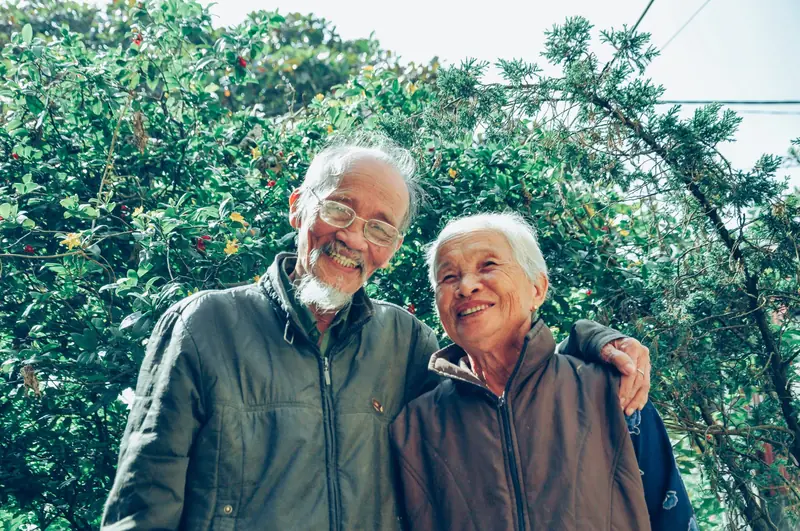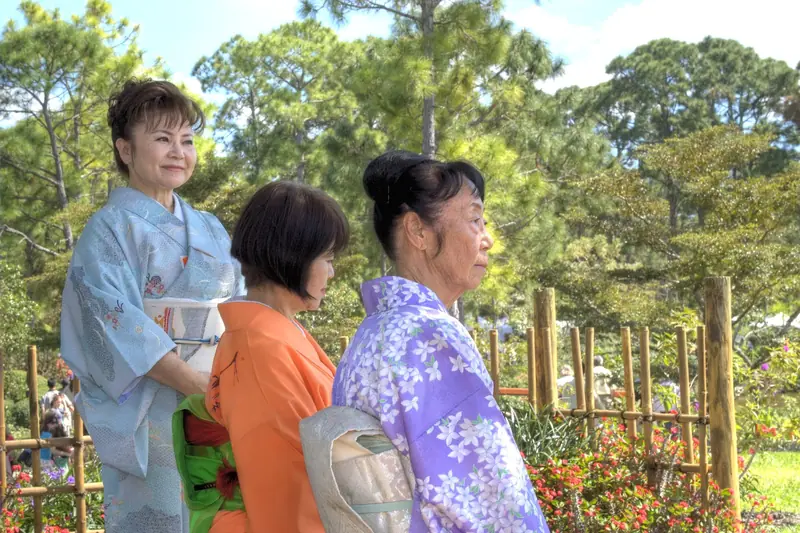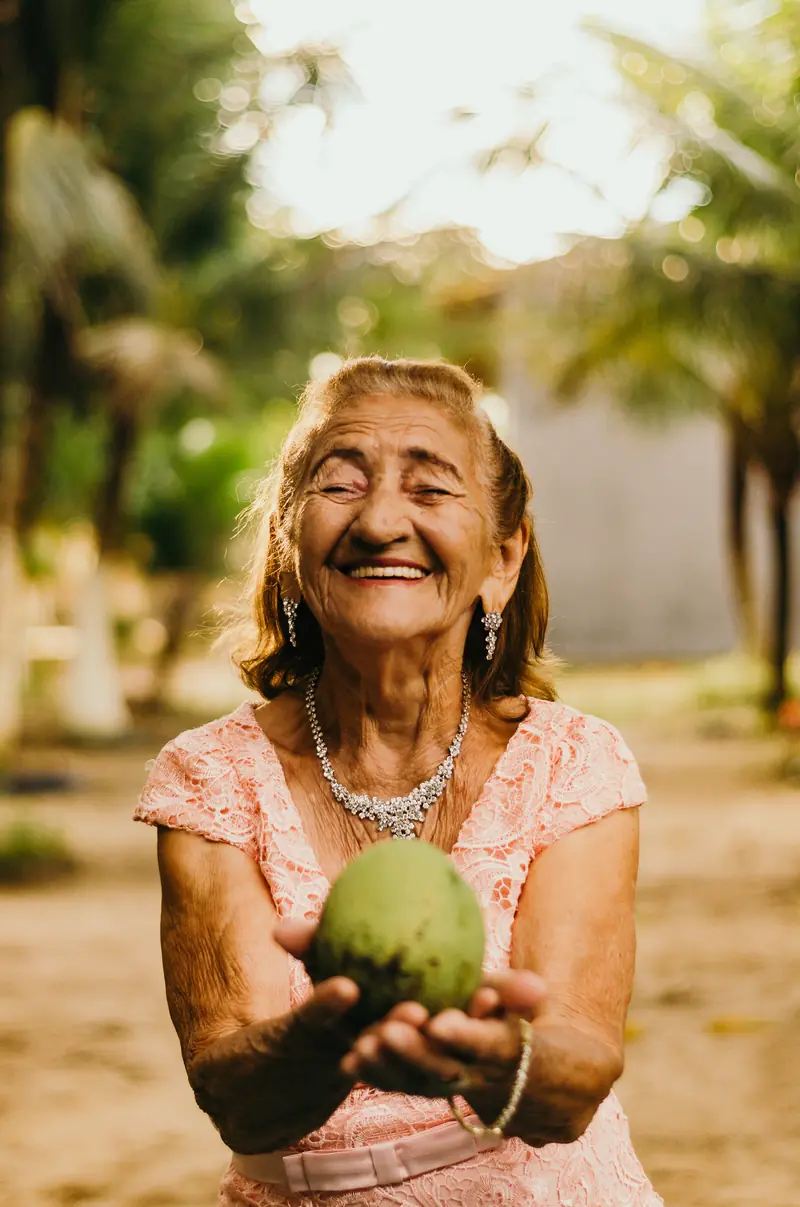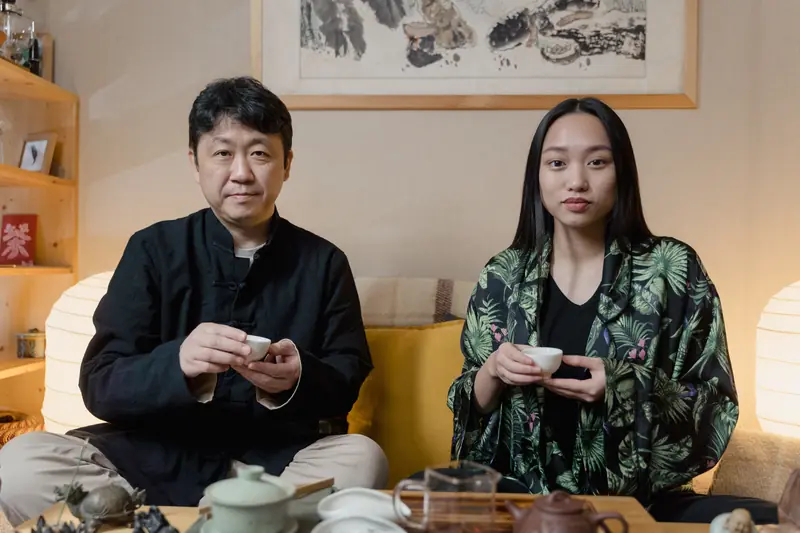
How do they manage this? The secret lies in their unique products, dietary restrictions, and mental traditions.
A Country Without Obesity: Tips from Japanese Centenarians
With their slim bodies, smooth skin, shiny hair, and bright eyes, the people of the Land of the Rising Sun enjoy numerous advantages, regardless of age. The foundation of Japanese cuisine consists of fish, vegetables, fruits, soy, and rice, resulting in dishes that are low in fat, sugar, and calories. Obesity is ten times less common in Japan than in the United States and three times less than in France. Additionally, Japan boasts the lowest rates of heart attacks, breast cancer, and prostate cancer. Not only are they world champions in longevity, but they are also the healthiest nation on the planet. With an average life expectancy of 79 years for men and 86 for women, the healthy life expectancy in this country is 77.7 years.
Fish Over Meat
The Japanese favorite foods include salmon, trout, cod, tuna, and mackerel. Seafood such as mussels, scallops, shrimp, octopus, and squid are also popular. The omega-3 polyunsaturated fatty acids found in this diet help prevent cardiovascular diseases, malignant tumors, and inflammatory processes. On average, a Japanese person consumes 68 kg of fish per year—four times more than the average in other countries. This has a “legislative” explanation: as far back as the 7th century, a Japanese emperor banned the consumption of land animal meat. These traditions have proven resilient. Each year, the average Japanese person buys about 45 kg of meat, while in the U.S., that figure is 130 kg, in France, it’s 102 kg, and in Germany and the UK, it’s 80 kg.
Healthy Variety
Processed and refined foods are consumed much less in Japan than in other countries, and the overall calorie intake is lower. The residents of these Far Eastern islands prefer seasonal fresh vegetables, such as local daikon radish, turnips, eggplants, lettuce, bamboo shoots, spinach, and other greens. The Japanese consume five times more varieties of cabbage and watercress than Europeans and Americans. Phytoestrogens found in cruciferous vegetables (like cabbage) reduce the risk of cancer. The active consumption of vegetables and fruits helps eliminate excess weight. On average, Japanese people eat about 50 different dishes each week, while Europeans stick to around 30 options.
Small Portions
People here don’t aim to overeat. Their rule is: “Full at 80%.” A Japanese portion is one-third smaller than a European portion and half the size of an American one.
Rice Instead of Bread
Island residents are not spoiled by baked goods; the local staple is rice. This rich source of complex carbohydrates contains no saturated fats, cholesterol, or salt.
A Love for Tea
The Japanese have long associated green tea with health and longevity: since the 12th century, Chinese leaves were brought by the Buddhist monk Eisai as a remedy for ailments. Japan even has a tea-rice porridge. In addition to the most popular green tea, which is served for free in local eateries, the Japanese also drink black tea and cold barley tea (mugicha).

The Cult of Old Age: Secrets of Caucasian Centenarians
Here lives 42% of all people on Earth who have reached the age of 100. Long life in these regions is a genetic norm. The peoples of the Caucasus have an innate predisposition to longevity. Studies show that hereditary centenarians are healthier than those who achieve this milestone for the first time in their family history. The explanation for Caucasian health lies in the clean air, natural nutrition, lifestyle characteristics, and the soulful qualities of the mountain people.
Natural Food for Longevity
Modern Caucasians eat the same foods as their ancestors. Their diet is based on plant products rich in fiber (antioxidants that prevent aging). Due to the consumption of vegetables, fruits, grapes, corn, and sunflower oil, their food contains little cholesterol and is abundant in vitamins, polyunsaturated fatty acids, and linoleic acid. The traditional consumption of dairy products explains the similarity in gut microbiota between adults and children. The spicy seasonings typical of local cuisine, made with red pepper, contain capsaicin, which helps normalize lipid metabolism, lower blood pressure, improve blood clotting, and regulate body temperature.
Healthy Air
Gerontologists have found that mountain people have significantly better respiratory systems and experience far fewer lung diseases than residents of other regions. Longevity is aided by the thin air of high altitudes, which contains natural ionizers. The proximity to the sea, the surf, thunderstorms, waterfalls, mountain rivers, dust storms, and snowstorms create a high concentration of negative aeroions. In the mountains of Abkhazia, for example, there are 20,000 negative ions per cubic centimeter of air, while at sea, there are 2,000, in the forest, from 200 to 1,000, and in industrial settings, only 10-20 (for comparison).
Confidence in the Future
People live long where society respects old age. The experience and wisdom of the older generation are revered in the Caucasus. Respect and demand for elders are the main recipes for longevity. In mountainous areas, people honor the traditions of their ancestors, maintaining family values for centuries. The culture of mountain dwellers is rooted in time-tested behaviors that help them cope with stress and prevent social upheaval. Support and mutual assistance, preserving the social role of the elderly in families and communities, and ensuring psychological and material comfort for older individuals are the foundations for longevity. Elders are known for being calm, kind, non-confrontational, sociable, and not fixated on the past.

A Life Without Poison: How to Live Longer?
In China, dying before the age of 80 is considered premature. The average life expectancy in the Middle Kingdom is 85 years for women and 79 for men. The Chinese believe that lifestyle choices made at the age of 40 are crucial for longevity. If less than 10% of the population suffers from chronic diseases at this age, that number doubles within five years. Traditional Chinese medicine asserts that the foundation of health in old age is laid during a relatively short period: for men, from 30 to 50 years, and for women, from 40 to 60 years. This is when the peak of atherosclerosis development occurs—hence, health should be a priority during these “key decades.”
Pedal to the Metal
Living long in the Chinese “human ant colony” requires movement. Here, everyone rides bicycles, and there is a sports or children’s playground for every three houses.
A Unique Cuisine
The main culinary secret of Chinese longevity is cooking without “white poison.” Salt is replaced with aromatic herbs and soy sauce, while sweetness is added to dishes with roots and fruits: pineapples, pears, and peaches. The local cuisine uses healthy peanut and corn oils, and foods are often prepared in a batter made of eggs, seasonings, and starch (the latter enhances memory). Chinese tables are always filled with juicy vegetables and have little bread. It’s not customary to drink while eating here.

Tea is the Key
The secret to Chinese longevity lies in the ancient tea-drinking traditions. This is the most accessible antioxidant and calming agent. At home, tea is brewed just before consumption, steeped for no longer than 10 minutes. Green tea is sensitive to boiling water (it brews at 90 °C). The Chinese do not sweeten their tea and do not drink it quickly; they savor the spicy flavor, fragrant aroma, and calming atmosphere.
Think Positive
During tea drinking and meals, it is not customary for the Chinese to dwell on problems. Eastern wisdom teaches that one pleasant thought is stronger than a handful of pills. While proper nutrition and physical activity ensure physical health, kindness nurtures the soul. Chinese philosophy revolves around a calm perception of the world.
